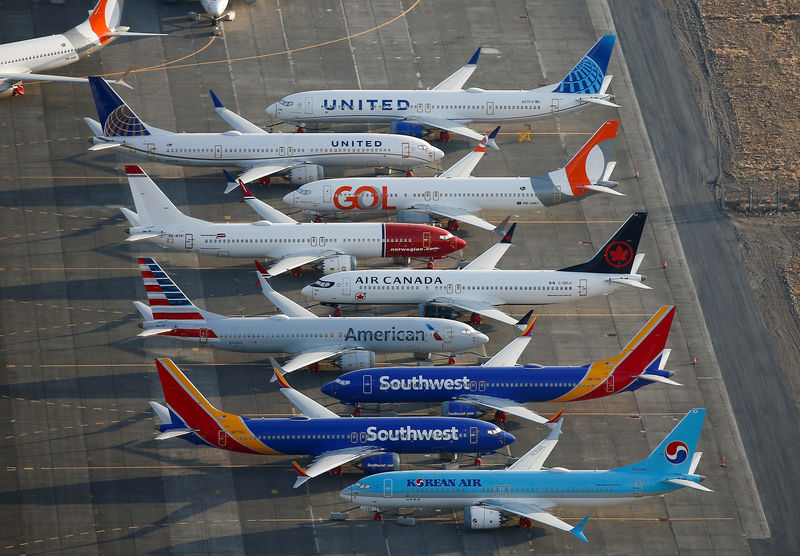By David Shepardson
WASHINGTON (Reuters) - The Federal Aviation Administration (FAA) must work to restore "public confidence" in aircraft certification efforts after two deadly Boeing (NYSE:BA) 737 MAX crashes, the U.S. Transportation Department's inspector general said on Wednesday in a public report.
The long-standing practice of delegating certification tasks to aircraft manufacturers has come under criticism from lawmakers and others after the two crashes in October 2018 in Indonesia and March 2019 in Ethiopia, which killed 346 people.
The report, reported by Reuters before its public release late Wednesday, said the FAA faces a "significant oversight challenge" to ensure that companies conducting those tasks "maintain high standards and comply with FAA safety regulations."
The report said that by March 2020, the FAA plans to introduce "a new process that represents a significant change in its approach to overseeing" aircraft designation efforts.
The FAA did not immediately comment.
U.S. Transportation Department Secretary Elaine Chao in a Aug. 12 memo to FAA Administrator Steve Dickson made public Wednesday said the crashes "prompted important questions about the certification of the 737 MAX, the FAA's aircraft certification and oversight processes generally and the receptiveness of FAA's leadership to critical feedback from within its ranks."
Chao in August ordered Dickson to address those questions and said "continued excellence requires rooting out problems and embracing opportunities for improvement."
Dickson said Tuesday that the FAA and airplane manufacturers need to better scrutinize the interface between pilots and machines. He added the FAA and manufacturers must improve processes to ensure "we don't have fragmented communications" on certification.
The 58-page report also laid out other management challenges the FAA and Transportation Department face, including cybersecurity, airspace modernization, integrating drones into the air space, air carrier safety oversight and preparing for emerging vehicle automation technologies.
The report added that "the new process will include identifying critical system elements and developing new evaluation criteria. While revamping FAA’s oversight process will be an important step, continued management attention will be key to ensure the agency identifies and monitors the highest-risk and safety-critical areas of aircraft certification."
Congress is mulling changes to how the FAA delegates some certification tasks to manufacturers for new airplanes. In the 737 MAX certification it initially delegated 40% of the work to Boeing and later shifted more work to Boeing, including work on a key safety system tied to both deadly crashes known as MCAS.
The Inspector General's office has an ongoing investigation into the activities that resulted in the certification of the Boeing 737 MAX that is not expected to be completed until next year.
The Transportation Department in a letter to Congress Wednesday said it had turned over 33,000 pages of documents on the 737 MAX, including 5,000 pages of emails, and let congressional investigators interview numerous FAA employees. It denied that documents from a former Boeing pilot made public Friday were evidence of "coziness" between the FAA and manufacturer.
A report from the Joint Authorities Technical Review (JATR), a panel of international regulators commissioned by the FAA and released earlier this month, faulted the review of MCAS and Boeing for assumptions it made in designing the airplane.

The JATR recommendations said the FAA’s longstanding practice of delegating "a high level" of certification tasks to manufacturers, such as Boeing, needs significant reform to ensure adequate safety oversight. It also questioned the limited FAA staffing of oversight and qualifications of some FAA employees overseeing Boeing and said there were signs some Boeing employees conducting FAA tasks reported feeling "undue pressure."